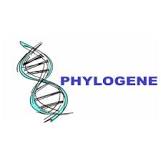Comparative proteomics analysis of skin disorder by Phylogene
22 November 2017
Primary cutaneous amyloidosis (PCA) is a localized skin disorder that is characterized by the abnormal deposition of amyloid in the extracellular matrix (ECM) of the dermis. The pathogenesis of PCA is poorly understood.
Total protein from PCA lesions and normal skin tissue samples were extracted and analyzed using the isobaric tags for relative quantitation technique by nanoLC-MS/MS. A total of 1,032 proteins were identified in PCA lesions and control skin samples, with 51 proteins differentially expressed in PCA lesions, of which 27 were upregulated.
GO analysis indicated that the upregulated proteins were significantly enriched in the biological processes of epidermal development, collagen fiber organization and response to wounding (adjusted P<0.001). KEGG analysis indicated that the upregulated proteins were significantly enriched in the signaling pathways of cell communication, ECM receptor interaction and focal adhesion (adjusted P<0.001).
This analysis of differentially expressed proteins in PCA suggests that increased focal adhesion, differentiation and wound healing is associated with the pathogenesis of PCA.
Such a study easily allows to compare and determine any cosmetic product effect on healthy or pathological skin, like AD, acne or psoriasis.
Comparative proteomics analysis of primary cutaneous amyloidosis.
Cai D and all 2017 https://www.ncbi.nlm.nih.gov/pubmed/28912854
With Phylogene, you can also characterize and understand the effects on skin.
High-resolution nano LC-MS/MS quantitative proteomics and CORAVALID™ data processing: The efficient tool for discovery
And also:
Untargeted evaluation of effects on skin and microbiome simultaneously http://ms.phylogene.com/Local/msphylogene/files/88/Microbiome.Active.ingredient.study.012016..pdf
Contact
Gilbert Skorski
62, Route Nationale 113
30620 BERNIS
Tel : +33 4 66 04 77 99
Fax : +33 4 66 04 77 97
e-mail : gskorski@phylogene.com








 Follow us on Linkedin!
Follow us on Linkedin!
You must be logged in to post a comment.